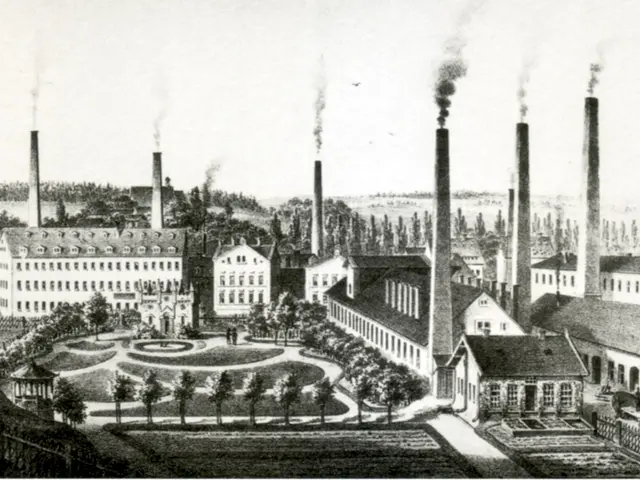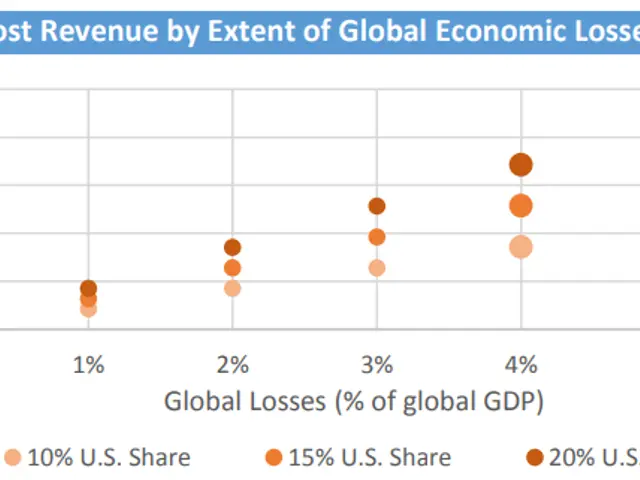Job positions less vulnerable to artificial intelligence, temporarily secure
==============================================================
In the rapidly advancing world of technology, one might wonder which jobs are safe from the encroaching tide of automation. Recent research and expert analysis have identified several roles that remain effectively automation-proof due to their reliance on human-specific capabilities.
The jobs at minimal risk of automation share common threads: they demand complex human physical interaction, emotional intelligence, and nuanced decision-making. These roles include specialized machine operators, healthcare professionals and therapists, clergy and spiritual leaders, creative and managerial roles in the hospitality industry, and skilled trades such as plumbers, electricians, and welders.
Specialized Machine Operators
Jobs such as dredge operators, bridge and lock tenders, and water treatment plant operators require hands-on equipment control and situational awareness, making them incompatible with AI automation.
Healthcare Professionals & Therapists
Positions in the healthcare sector, including radiologists, psychologists, therapists, and social workers, require significant human judgement and empathy. These roles involve high contextual judgement and emotional understanding, which AI struggles to replicate.
Clergy and Spiritual Leaders
Deeply human social and ethical roles, such as those of clergy and spiritual leaders, also remain safe from full automation. These positions demand empathy, moral judgement, and social understanding, which AI currently lacks.
Creative & Managerial Roles in Hospitality
Non-routine, imaginative decisions are central to creative and managerial roles in the hospitality industry. These roles require creativity and complex decisions beyond AI capabilities, ensuring their safety from full automation.
Skilled Trades (e.g., plumbers, electricians)
Jobs requiring manual dexterity combined with adaptability and empathy in unpredictable settings, such as many healthcare providers, therapists, social workers, and skilled tradespeople, also face negligible direct replacement risk.
While many repetitive or routine entry-level and clerical jobs are rapidly automated, positions that involve human dexterity, emotional intelligence, and contextual judgement remain effectively automation-proof in 2025.
Here's a summary of the key human skills preventing automation and the reasons for the low automation risk in these job categories:
| Job Category | Key Human Skills Preventing Automation | Reason for Low Automation Risk | |------------------------------------|-------------------------------------------------|------------------------------------------------------------| | Specialized Machine Operators | Manual dexterity, situational awareness | Require precise physical equipment handling not automatable| | Healthcare Professionals & Therapists | Empathy, contextual judgment | Complex human emotions and adaptive care | | Clergy and Spiritual Leaders | Empathy, moral judgment, social understanding | Deeply human social and ethical roles | | Creative & Managerial Roles in Hospitality | Creativity, complex decision-making | Non-routine, imaginative decisions | | Skilled Trades (e.g., plumbers, electricians) | Manual dexterity, problem solving in unpredictable environments | Require hands-on skills and adaptive problem resolutions |
These jobs, as of 2025, have effectively close to 0% risk of automation due to their reliance on human-specific capabilities. No job is entirely untouched by AI, but these roles face negligible direct replacement risk due to their inherently human-centric skills.
Read also:
- Rich is determined to establish new gas-fired power plants in the southern region of Germany.
- Economy Minister Reiche acknowledges acceptance of French nuclear energy
- AI Companies Bluwave-Ai and Evolugen Partner on Venture: AI-Powered Energy Storage System Optimization for Grid-Scale Battery Peak Performance
- Senate allots spaces for wind turbines in Berlin








